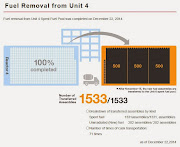When analysts and economists, and even politicians in the U.S. and Europe are talking about an "exit strategy" of the central banks, the European Central Bank pumps more money for longer period.
ECB Injects $662 Billion into Banking System
(6/24/09 Wall Street Journal)
"The European Central Bank pumped a record amount of liquidity into its money market Wednesday, signaling continued monetary stimulus as banks jumped at the chance of locking in low-cost funds for 12 months."
Well, this doesn't look like a green shoot growing in Europe.
Now the ECB's balance sheet will far exceed that of the US Federal Reserve, at 2.16 trillion Euro (= US$ 3.03 trillion).
As of June 19, 2009, ECB's balance sheet size was more or less comparable to the Fed's, at 1.72 trillion Euro (= US$2.41 trillion). As of June 20, 2008, it was 1.44 trillion Euro. The increase was almost entirely due to the increase in "Lending to euro Area Credit Institutions". (Here's the link to ECB's weekly financial statements.)
Back to the WSJ article:
"The ECB action came as policy makers in most developed economies pondered the right timing to institute "exit strategies" to reverse the torrent of monetary and fiscal stimulus pumped into world economies to stave off the worst of the recession."
What exit strategy? is what central banks in both the U.S. and Europe are saying.
"Analysts said the high demand for the funds reflected the problems some banks are still having in funding their businesses. At the same time, it also reflected expectations that the euro zone's economy will start to recover later in the year, and that the low rates offered this week may not be around for much longer thereafter."
"some banks [still having problem in funding their businesses]" seems an understatement, if 442 billion Euro was quickly taken up.
"He [ECB governing council member Lorenzo Bini Smaghi] added that local authorities should make sure they do [financial institutions lend the money out]. Some analysts have warned that the banks are more likely in the first instance to throw money at short-dated government bonds, locking in the positive spread, or "carry," currently on offer."
How should the local authorities make sure the money gets loaned out? How could they? Unless there's a stiff penalty for hoarding, the money is likely to be used for carry trades, as "analysts have warned".
Debasing the currency and penalizing hoarding have been tried many times throughout the history, and they haven't worked. Imperial Romans tried and miserably failed, most likely prompting the collapse of the empire even before the barbarians showed up at their gates.
戦争の経済学
-
ArmstrongEconomics.com, 2/9/2014より:
戦争の経済学
マーティン・アームストロング
多くの人々が同じ質問を発している- なぜ今、戦争の話がでるのか?
答えはまったく簡単だ。何千年もの昔までさかのぼる包括的なデータベースを構築する利点の一つは、それを基にいくつもの調査研究を行...
10 years ago



 Tokyo Time
Tokyo Time
![[Most Recent Quotes from www.kitco.com]](http://www.kitconet.com/charts/metals/gold/t24_au_en_usoz_2.gif)



0 comments:
Post a Comment